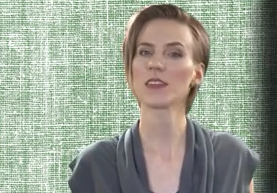This is Everyday Grammar. I'm Lucija.
欢迎收看《每日语法》栏目,我是露西佳。
And I'm Kaveh. Lucija, if you can change one thing about your past, what would you change?
我是卡维。露西佳,如果你能改变过去的一件事情,你希望改变什么?
That's an interesting question.
这个问题很有意思,
I don't have many regrets, but if I had to change one thing, I think I would continue with martial arts classes.
我没有太多遗憾,但如果可以改变一件事情的话,我想我会继续学习武术。
Wow, that's really cool. How about you?
哇哦,那太酷了!你呢?
Well, if I had known the importance of learning a foreign language, I would have studied one.
我嘛,如果我知道学习一门外语的重要性,我就会选学一门外语。
You know what this conversation reminds me of? Past unreal conditionals.
你知道我们这次对话提醒了我什么吗?过去虚拟条件句。
Like other conditionals, the past unreal conditional has an "IF" clause and a "RESULT" clause.
和其他的条件句一样,过去虚拟条件句有if从句和结果从句;
Past unreal conditionals are rather complex. Use the past perfect in the "IF" clause.
过去虚拟条件句相当复杂。在if从句中使用过去完成时态。

In the "RESULT" clause, use "would" followed by the present perfect.
结果从句中,使用would+过去完成时态,
Here is an easy formula to remember: If I had known A, I would have done B.
记住下面这个简单的公式:如果我早知道A,我就去做B了。
The past unreal conditional is really helpful to describe how you would have acted differently if you had had more information.
在描述以下情形时,使用过去虚拟条件句很有帮助:如果你得到更多信息,你的做法就会不同。
Past unreal conditionals often express regret about something that happened in the past.
过去虚拟条件句通常用来表达对过去发生的事情的遗憾,
Like the fact that I didn't continue with martial arts when I was younger.
就像年少时,我没有继续学习武术一样,是既成事实。
Or that I didn't learn a foreign language when I was younger.
抑或是年少时,我没有学习外语。
But Kaveh, I don't think we should feel bad, because now we're about to talk about grammar with you.
但是,Kaveh,我觉得我们没必要觉得这很糟糕,因为我们现在正跟你们探讨语法呢。
And that's Everyday Grammar.
以上就是今天节目的全部内容。











